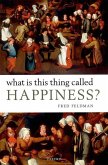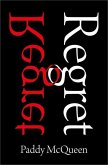Disgust has recently been riding a swell of scholarly attention, especially from those in the cognitive sciences and those in the humanities in the midst of the ¿affective turn.¿ Kelly surveys the empirical literature and experimental results relevant to disgust and proposes a cognitive model that can accommodate what we now know about it. He offers a new account of the evolution of disgust that builds on the model and argues that expressions of disgust are part of a sophisticated but largely automatic signaling system that humans use to transmit information about what to avoid in the local environment. Drawing on gene culture coevolutionary theory, Kelly argues that disgust was co-opted to play certain roles in our moral psychology. He shows that many of the puzzling features of moral repugnance tinged with disgust are by-products of the imperfect fit between a cognitive system that evolved to protect against poisons and parasites and the social and moral issues on which it has been brought to bear. Kelly¿s account of this emotion provides a powerful argument against invoking disgust in the service of moral justification.
Hinweis: Dieser Artikel kann nur an eine deutsche Lieferadresse ausgeliefert werden.
Hinweis: Dieser Artikel kann nur an eine deutsche Lieferadresse ausgeliefert werden.








